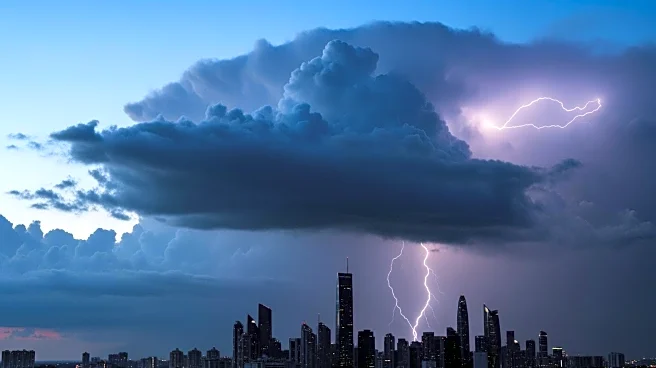What's Happening?
BBC director-general Tim Davie and CEO of News Deborah Turness have resigned following criticism over the editing of a speech by President Trump in a BBC Panorama documentary. The documentary, titled 'Trump: A Second Chance?', was accused of misleadingly
editing parts of Trump's speech to suggest he encouraged the January 6 Capitol riot. The controversy led to calls for resignation and scrutiny from the UK Parliament's Culture, Media, and Sport Committee. Davie, who has been with the BBC for 20 years, and Turness, who joined in 2022, both stepped down amid the backlash.
Why It's Important?
The resignations highlight ongoing concerns about media bias and editorial standards, particularly in coverage of politically sensitive topics. The BBC, as a major public broadcaster, plays a significant role in shaping public discourse, and its handling of such issues can impact public trust. The incident underscores the challenges media organizations face in maintaining impartiality and accountability, especially when covering polarizing figures like President Trump. The resignations may prompt further scrutiny of the BBC's editorial practices and influence future media coverage standards.
What's Next?
Tim Davie has stated that he is working with the BBC Board to ensure a smooth transition to his successor. This process will unfold over the coming months, allowing the organization to address the editorial concerns raised. The BBC will likely face increased pressure to review and possibly reform its editorial guidelines to prevent similar controversies. Stakeholders, including media watchdogs and political figures, may continue to monitor the situation closely, influencing the BBC's future leadership and editorial direction.
Beyond the Headlines
The resignations could have broader implications for media accountability and transparency. As public trust in media is crucial, this incident may lead to calls for more stringent oversight and clearer guidelines on editorial practices. The BBC's handling of the situation could serve as a case study for other media organizations facing similar challenges, potentially influencing industry standards and practices globally.
















